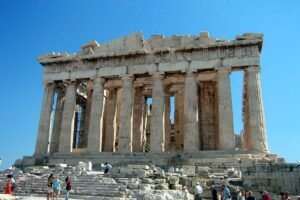
Without the Earth, there is nothing to hold the water, without the water, there is nothing to contain the fire, without the fire, there is nothing, without the air, there is nothing to feed the fire.
In many traditions, Earth, Water, Fire, and Air are considered the fundamental elements that compose the universe. Earth is often seen as the element that provides structure and stability, holding bodies of water and providing a foundation for life. Without Earth, water would have no basin to collect in, leading to a loss of the ecosystems that thrive in aquatic environments. Water, in turn, is seen as the element that moderates fire, preventing it from becoming destructive. Fire, while potentially devastating, also has the capacity to warm and provide energy. It requires air, specifically oxygen, to sustain itself; without air, fire cannot burn. This delicate balance between the elements is a concept that has been explored in various philosophical and religious texts throughout history.
For instance, the biblical narrative in Genesis describes the Earth as “without form and void,” suggesting a primordial state lacking order and substance. This aligns with the idea that Earth provides a necessary structure for the existence of water and, subsequently, life. Similarly, in ancient Near Eastern cosmologies, such as the Enuma Elish, creation stories begin with the primordial waters of chaos from which order is formed. In these narratives, the separation and organization of the elements are crucial acts of creation.
The interplay of elements is not only a philosophical concept but also has practical implications in understanding environmental science and ecology. The hydrological cycle, for example, relies on the Earth’s gravitational field to hold water, and the presence of water bodies greatly influences the climate and temperate zones, affecting fire regimes and the distribution of species. Fire ecology studies how fire is an integral part of many ecosystems, playing a role in nutrient cycling and habitat formation. Air, or more specifically the composition of the atmosphere, is critical for both the propagation of fire and the maintenance of life through the respiratory processes of organisms.
In summary, the statement you’ve provided can be seen as a poetic reflection on the interconnectedness of the classical elements and their roles in the natural world. It underscores the importance of each element in maintaining the balance necessary for life and the functioning of ecosystems. This perspective encourages a holistic view of nature, where each component is vital to the whole, and its absence would lead to a collapse of the system as we know it. The references to source materials and articles provided here offer a glimpse into the depth of thought and inquiry that has been devoted to understanding the essence and interrelation of these fundamental elements throughout history and across cultures.
Subscribe to our post updates - Don't miss a thing!!








